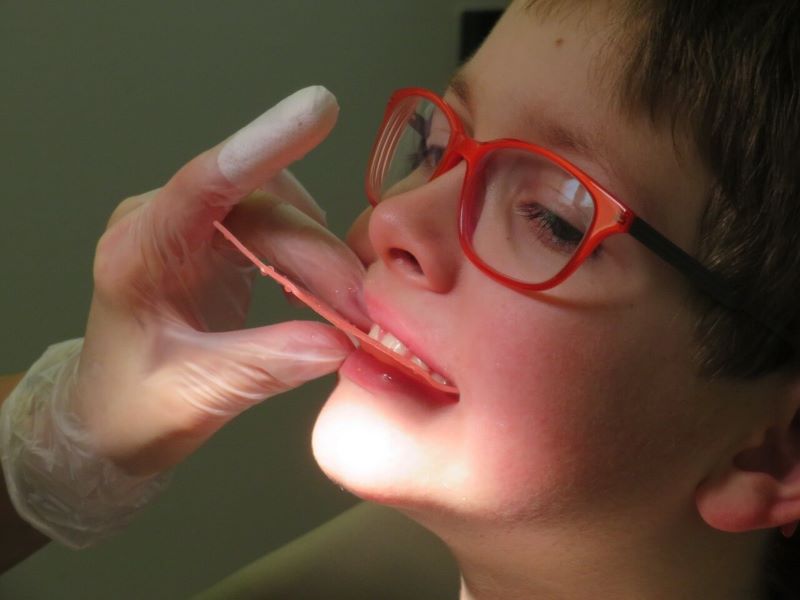Getting braces is a big step for children and teenagers. While braces are important in correcting teeth alignment and promoting better oral health, the adjustment period can be challenging and uncomfortable. As a parent, your support and guidance can help your child have a positive experience with their new braces. Here are some tips to best help your child adapt to wearing braces.
Why You Should Get Braces for Your Child

Importance of Orthodontic Treatment for Dental Health
Braces help align crowded, crooked, or protruding teeth in children and adults. Proper alignment prevents tooth decay, gum disease, and jaw problems due to misaligned bites.
Benefits of Braces for Correcting Teeth Alignment
Braces use constant, gentle pressure over time to slowly move teeth into a straighter, healthier position. They provide cosmetic and medical benefits, and straighter teeth improve teeth brushing, flossing, and overall dental hygiene.
Long-Term Benefits of Braces for Overall Oral Health
Braces today help prevent dental problems years down the road as teeth stay in proper alignment. They also make teeth look more attractive and allow an evenly distributed bite force. A lifelong, radiant smile is a huge benefit and confidence booster for children.
Challenges Your Child May Face with Braces
Discomfort and Pain During the Initial Adjustment Period
Teeth will feel sore for up to a week after each brace tightening. Provide over-the-counter pain relief as recommended by the dentist. An expert pediatric dentist in Escondido suggests that you must rinse your mouth with warm salt water daily to reduce inflammation.
Challenges with Eating and Speaking
Your child will need time to get used to braces and adjust how they eat and speak. Initially, offer soft, small foods like broths, Jell-O, yogurt, bananas, and potatoes. Their speech may initially sound slightly distorted but will return to normal within a month or so.
Self-Consciousness or Embarrassment About Wearing Braces
Children may feel embarrassed by the appearance of braces. Please encourage your child to share photos on social media to help their friends get used to the new look. Compliment your child and focus on the benefits to help build their confidence while bracing. Tease less about new braces and retainers.
How to Best Help Your Child Adjust to New Braces
Educate Your Child About the Importance of Braces
Explain how braces work and the benefits to help your child understand why they need them. Set a countdown to braces removal to motivate them during treatment. Focus on long-term rewards like a perfect smile and good dental health.
Provide Proper Oral Care and Hygiene Instructions
Go over brushing, flossing, and cleaning around braces to prevent tooth decay and staining. Check that your child properly cleans teeth and braces at least twice daily for the best results. See your orthodontist if there are any questions.
Offer Emotional Support and Encouragement
Give your child extra reassurance, compliments, and positive reinforcement to help them stay comfortable and confident wearing braces. Remind them that braces are only temporary, but the benefits last forever. Schedule orthodontist consultations together so you fully understand the treatment plan and can properly support your child.
Encourage Healthy Eating Habits and Food Choices
Promote soft, nutritious foods that won’t damage braces, like dairy, eggs, soups, stews, and casseroles. Discourage sticky, hard, and sugary treats that can break or stain braces. Remind your child that braces are not an excuse to fill up junk food with empty calories. Focus on balance and moderation.
Discuss and Address Any Concerns or Questions Your Child May Have
Listen to your child and be available to address any worries they have about braces or their treatment. See your orthodontist together to clarify any concerns and ensure the best possible experience wearing braces during every stage of care. Your support and involvement will help put your child at ease.
Conclusion
Helping your child adjust to wearing braces is challenging, but with patience, education, and encouragement, the experience can be positive. Explain the benefits of orthodontic treatment, provide proper aftercare, offer emotional support, and set a good example with your dental health habits.
Stay involved every step of the way to help your child feel good about wearing braces and achieve a bright smile that lasts a lifetime. With your help, the rewards of straighter teeth and better posture will far outweigh any temporary discomfort from braces.
 Infographic Portal New Infographics Resource Portal
Infographic Portal New Infographics Resource Portal
